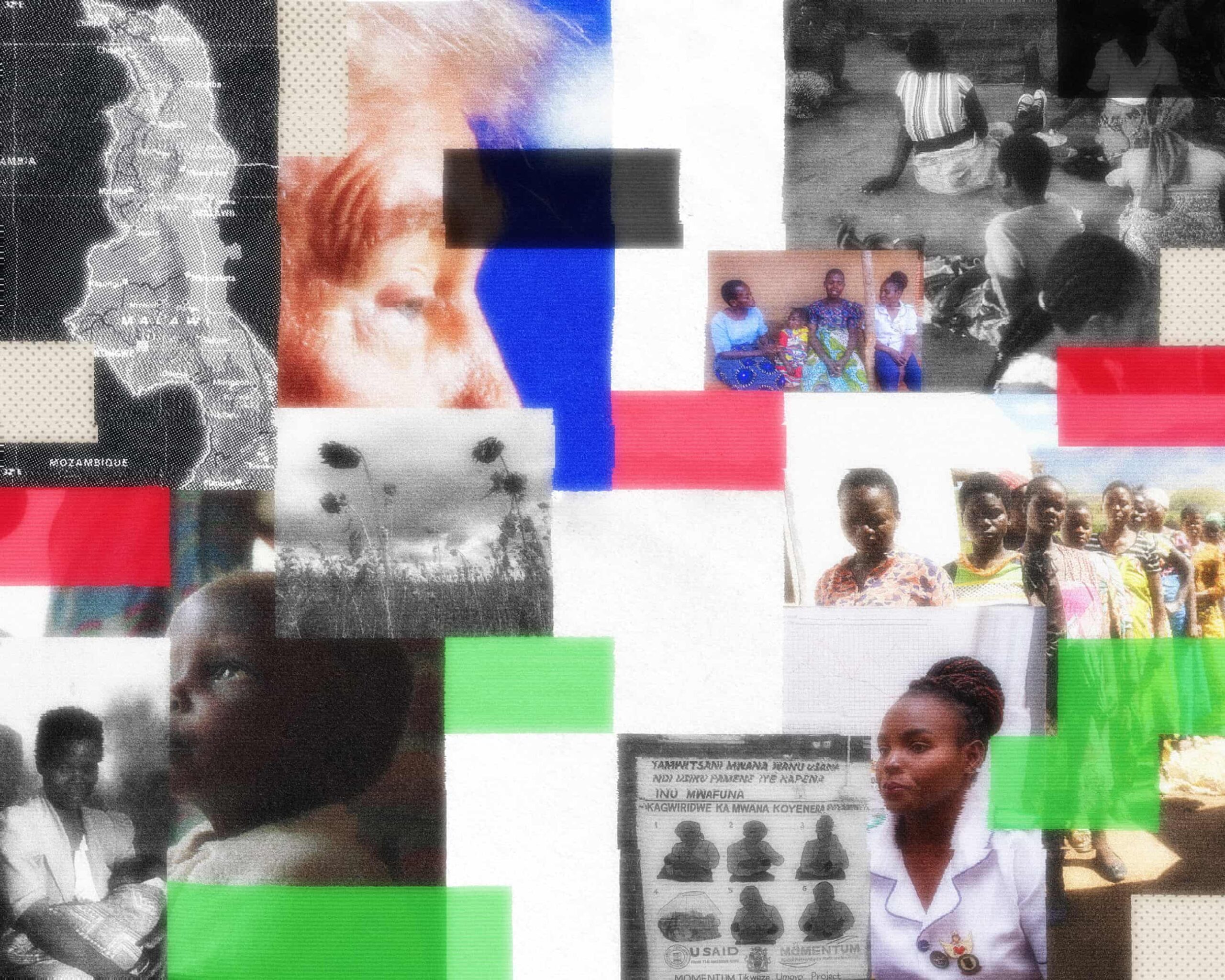Lifestyle
Aid Cuts in Malawi Threaten Maternal Health and Safety

In Malawi, significant cuts to foreign aid have severely impacted women’s healthcare, particularly in rural areas. The abrupt end of a vital healthcare outreach programme has left many pregnant women without essential medical services, further endangering maternal health and safety.
Joanna Banda, an expectant mother in her third trimester, faces the grim reality of navigating her healthcare needs without adequate support. At just 22 years old, she has only attended three of the five recommended antenatal appointments, struggling to save the necessary 3,000 kwacha (approximately £1.28) for a bicycle to reach the nearest health centre located six miles away. Banda, who has already lost one child shortly after birth, represents a growing number of women in Malawi’s remote villages who cannot access necessary medical care.
The healthcare programme, known as Momentum Tikweze Umoyo, was a five-year initiative funded by the United States with a budget of $28 million (£20 million). It aimed to reduce maternal and infant mortality rates across five districts in Malawi. Unfortunately, the programme was abruptly terminated in January 2024 following significant cuts to foreign aid initiated by former President Donald Trump. These cuts were part of a broader strategy that saw $9 billion in aid reductions approved by Congress, with an additional $4.9 billion in aid set for cancellation.
In the village of Kafulatira, where Banda lives, the community of nearly 1,000 residents lacks basic infrastructure, including piped water and electricity. The only bridge connecting them to the nearest health centre was washed away in December 2023, complicating access even further. Many women relied on mobile clinics that provided essential services, including screenings for cancers and vaccinations for children. Now, those services are no longer available.
Mulirani Gerard, a local resident, expressed the distress caused by the service cuts, noting, “The outreach clinics were helping a lot, because we could access services right here in the village.” Without these clinics, unintended pregnancies are on the rise, as women struggle to obtain contraceptive methods.
Juliette Kannda, another resident, now faces a daunting journey to access health services. Previously receiving bi-monthly contraceptive injections, she must save 10,000 kwacha for a 25-mile round trip to another health centre. “I am looking forward to getting the [contraceptive] implant,” she said, highlighting the challenges posed by the loss of local healthcare options.
Malawi stands as one of the world’s poorest countries, with a per capita income of just $508 in 2024, according to the World Bank. The country is particularly vulnerable to the effects of climate change, with 80% of the population engaged in agriculture and a history of devastating cyclones and droughts. The reliance on foreign aid is critical, with US aid accounting for 2% of Malawi’s GDP in 2024—significantly higher than the 0.5% average across sub-Saharan Africa.
The International Food Policy Research Institute (IFPRI) reported that in 2023, the US contributed to 25% of all aid sent to Malawi. The cuts to US aid are expected to reduce assistance by 59% this year alone, potentially impacting Malawi’s GDP by 1%. With a fiscal deficit of 10.1%, the Malawian government struggles to fill the gap left by foreign aid reductions.
Hester Nyasulu, the Malawi director for Amref Health Africa, a key supporter of the Momentum Tikweze Umoyo project, emphasized the dire consequences of the funding cuts. “We were starting to reap the benefits of the investment,” Nyasulu stated, warning that the termination of these funds will likely lead to increased maternal and infant mortality rates.
Data collected between January 2022 and December 2024 showed a decline in maternal mortality rates across the districts involved in the Momentum Tikweze Umoyo initiative. More children received vaccinations and treatment for malaria, and there was an increase in the number of women accessing family planning services. The outreach clinics previously reached multiple communities every weekday, but with the cessation of funding, these vital services have vanished.
Healthcare quality is deteriorating even in urban areas. In Lilongwe, the capital, funding cuts have led to fewer health workers trained to manage critical health issues such as tuberculosis (TB). Thoms Chigeda, the district TB coordinator, noted a decline in the early detection of TB cases due to reduced resources.
Meanwhile, Maclean Nkhoma, the immunisation coordinator for Lilongwe, reported a drop in the number of babies immunised monthly, from 11,000 to under 9,000, leading to a decline in infant immunisation rates from 98% to 85%.
As the situation worsens, the community’s health will continue to decline. Nkhoma expressed concern, stating, “If Africa is protected, that means the whole world is protected.” The ripple effects of these aid cuts extend beyond Malawi, underscoring the interconnectedness of global health challenges.
-

 Lifestyle4 months ago
Lifestyle4 months agoLibraries Challenge Rising E-Book Costs Amid Growing Demand
-

 Sports3 months ago
Sports3 months agoTyreek Hill Responds to Tua Tagovailoa’s Comments on Team Dynamics
-

 Sports3 months ago
Sports3 months agoLiverpool Secures Agreement to Sign Young Striker Will Wright
-

 Lifestyle4 months ago
Lifestyle4 months agoSave Your Split Tomatoes: Expert Tips for Gardeners
-

 Lifestyle3 months ago
Lifestyle3 months agoPrincess Beatrice’s Daughter Athena Joins Siblings at London Parade
-

 World3 months ago
World3 months agoWinter Storms Lash New South Wales with Snow, Flood Risks
-

 Science4 months ago
Science4 months agoTrump Administration Moves to Repeal Key Climate Regulation
-

 Science3 months ago
Science3 months agoSan Francisco Hosts Unique Contest to Identify “Performative Males”
-

 Business4 months ago
Business4 months agoSoFi Technologies Shares Slip 2% Following Insider Stock Sale
-

 Science4 months ago
Science4 months agoNew Tool Reveals Link Between Horse Coat Condition and Parasites
-

 Sports4 months ago
Sports4 months agoElon Musk Sculpture Travels From Utah to Yosemite National Park
-

 Science4 months ago
Science4 months agoNew Study Confirms Humans Transported Stonehenge Bluestones








